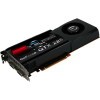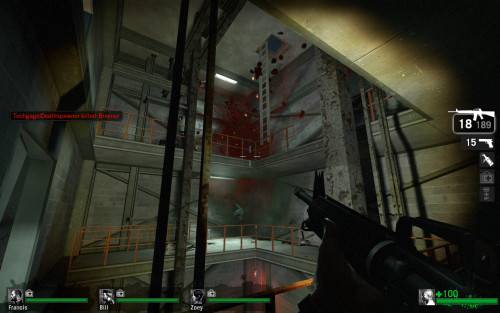- Qualcomm Launches Snapdragon 4 Gen 2 Mobile Platform
- AMD Launches Ryzen PRO 7000 Series Mobile & Desktop Platform
- Intel Launches Sleek Single-Slot Arc Pro A60 Workstation Graphics Card
- NVIDIA Announces Latest Ada Lovelace Additions: GeForce RTX 4060 Ti & RTX 4060
- Maxon Redshift With AMD Radeon GPU Rendering Support Now Available
EVGA GeForce GTX 285 SSC Edition

When NVIDIA released their GTX 285 card last month, it became the fastest single-GPU card on the market, and that fact still remains. But with our insatiable appetite for more performance, we can’t help but be curious as to how the cards perform when overclocked. So let’s check that out, with the help of EVGA’s SSC Edition.
Page 6 – Left 4 Dead
Not too many game publishers can brag about having such a great track record like Valve can. None of their major game releases have ever been released to anything but praise, which goes to show that not rushing to release a game to please investors can make a huge difference. Take Half-Life 2, Team Fortress 2 and Portal, for example.
Left 4 Dead is one game I didn’t take seriously up until its launch. After playing it though, my opinions changed drastically, and even as I type this, I feel like saving the document and going to play. But, I’m also scared of Zombies, so continue writing I shall. Like Dead Space, this game is a survival shooter, but unlike that game, this title focuses completely on co-op. For the most part, the game is dulled in single player, but team up with three of your friends and let the laughs and excitement begin.
The portion of the level we use for testing is contained within the No Mercy campaign. The ultimate goal in the entire campaign is to make it to the top of a hospital in order to be picked up and brought off to safety. Our run through takes place in the final part of the the campaign, which leads up towards the roof tops. If one thing can be said about this title, it’s that causing a Boomer to explode (as seen in the above screenshot) proves to be one of the most satisfying things to do in any game I’ve played in a while.



Valve’s releasing of games that both look great and run well on most machines is nothing new, with Left 4 Dead being the latest in their collection to be able to brag about such a thing. That said, it doesn’t take a massive card to power this game, so the GTX 285 of course cleans house.
One oddity I noticed during testing was that the 1680 and 1920 resolution results are much improved over what we experienced with the GTX 285 cards in our launch article. This goes far beyond the simple clock increase. I’m unsure of why there were huge increases this time around, but I’m lead to believe it was thanks to an update the game recently received, since backtracking to the same drivers we used for that article gave near-identical results.
|
Graphics Card
|
Best Playable
|
Avg. FPS
|
|
NVIDIA GTX 295 1792MB x 2
|
2560×1600, Max Detail, 8xMSAA
|
117.701 FPS
|
|
Palit HD 4870 X2 2GB
|
2560×1600, Max Detail, 8xMSAA
|
117.039 FPS
|
|
NVIDIA GTX 285 1GB x 2
|
2560×1600, Max Detail, 8xMSAA
|
109.491 FPS
|
|
Zotac GTX 295 1792MB
|
2560×1600, Max Detail, 8xMSAA
|
102.422 FPS
|
|
EVGA GTX 285 1GB SSC Edition
|
2560×1600 – Max Detail, 8xMSAA
|
86.831 FPS
|
|
Zotac GTX 285 1GB AMP!
|
2560×1600, Max Detail, 8xMSAA
|
73.075 FPS
|
|
NVIDIA GTX 285 1GB
|
2560×1600, Max Detail, 8xMSAA
|
72.072 FPS
|
|
Palit GTX 280 1GB
|
2560×1600, Max Detail, 8xMSAA
|
66.775 FPS
|
|
Diamond HD 4870 1GB
|
2560×1600, Max Detail, 8xMSAA
|
66.294 FPS
|
|
XFX GTX 260/216 896MB
|
2560×1600, Max Detail, 8xMSAA
|
56.608 FPS
|
|
Sapphire HD 4830 512MB
|
2560×1600 – Max Detail, 4xMSAA
|
48.612 FPS
|
|
Sapphire HD 4670 512MB
|
2560×1600 – Max Detail, 0xAA
|
39.770 FPS
|
Thanks to the recent boost in performance from the game (however it happened), the SSC edition pushed quite close to the GTX 295 with 8xMSAA at 2560×1600. In reality though, few are going to notice any real increase in performance over 60 FPS. That’s a good thing… pretty-much any mid-range card right now will offer enough performance to play one of the hottest games at its highest settings.
Support our efforts! With ad revenue at an all-time low for written websites, we're relying more than ever on reader support to help us continue putting so much effort into this type of content. You can support us by becoming a Patron, or by using our Amazon shopping affiliate links listed through our articles. Thanks for your support!






